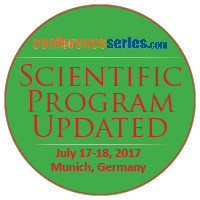
Aleksandar Dimkov
Saints Cyril and Methodius University of Skopje, Republic of Macedonia
Title: Glass-ionomer cements a template for releasing an antimicrobial agent
Biography
Biography: Aleksandar Dimkov
Abstract
The glass-ionomer cements, possessing the positive characteristics of fluorine in the processes of re-mineralization and antimicrobial action, distinguish themselves as the most acceptable restorative material. A vast number of studies have established that conventional and resin-modified GICs have the ability for slow and sustainable release of fluorides over long time periods. Because fluorine exhibits antimicrobial effects, glass-ionomer cements could be easily recognized to have an additional very significant characteristic-an antimicrobial effect. In addition to the release of fluoride ions, and in order to improve the antimicrobial characteristics, GICs can potentially be used as templates for the release of other active antimicrobial components. The most used antimicrobial agent to be incorporated in glass-ionomer cements in different concentrations and different percentage ratios is chlorhexidine. Unfortunately, reference data on the incorporation of other antimicrobial components in GICs is very scarce. Although some antimicrobial agents have a confirmed effect in the reduction of the cariogenic salivary flora when used in rinses or toothpastes, the results regarding their incorporation in glass-ionomer cements are still scanty. The main aim of this presentation is the answer to the question, can we obtain antimicrobial GIC-s and improve their characteristics with other antimicrobial components than chlorhexidine or not.

